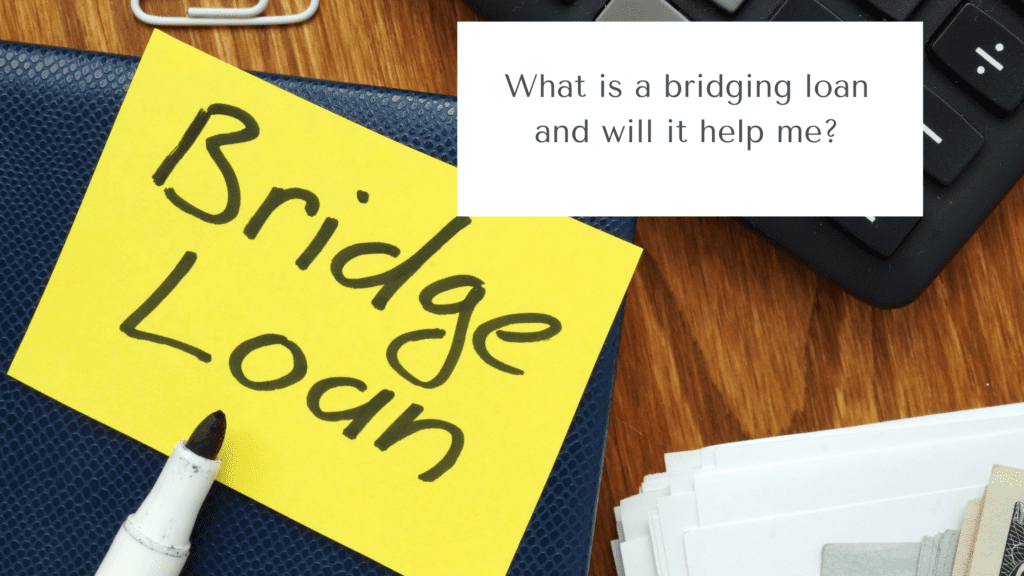Timing is crucial when buying property, and if you need to make a purchase quickly, it isn’t always possible to get a mortgage. A bridging loan is an alternative that’s faster but works very differently. So could a bridging loan be the solution?
If you are purchasing a property funded from the proceeds of the sale of another property, but the sale cannot be completed before or at the same time as the purchase, short-term finance may be required in order to bridge the gap so that the purchase can still proceed.
Bridging loans can also provide the cheapest option for raising the required funds. In addition, they have flexible lending criteria so that approvals can be given quickly without extensive checks, and they can be secured on all types of property, including property that is unsuitable to other lenders.
WHAT IS A BRIDGING LOAN?
A bridging loan is a type of short-term financing that’s sometimes used when buying property. As the name implies, it’s designed to bridge a gap between the time you buy a property and a moment in the future when you expect to be able to repay in full.
The most common use of a residential bridging loan is when you would like to purchase a new property but have not sold your existing property. In these cases it is possible to take out a short-term loan that can be repaid when your old property is sold.
“Like mortgages, bridging loans are based on a ‘loan-to-value’ or LTV ratio.”
WHO CAN GET A BRIDGING LOAN?
You’ll need to be a UK resident over the age of 21 to apply for a bridging loan. Usually, bridging loans are used by property developers or investors rather than residential buyers.
HOW MUCH CAN YOU BORROW?
Like mortgages, bridging loans are based on a ‘loan-to-value’ or LTV ratio. You can usually borrow at a maximum LTV of 60- 75%, meaning you can borrow between 60% and 75% of the value of your property.
For a £200,000 property, for example, this is between £120,000 and £150,000.
Usually, you can borrow at the top end of this range if you don’t also have a mortgage on the property, and at the lower end if you do have a mortgage. This is because both the mortgage and the bridging loan are secured on the same property.
If you fail to make your repayments, your mortgage provider has a higher priority claim to that property and any money made from its sale.
A bridging loan on a property with no mortgage is called a ‘first charge’ bridging loan, while a loan on a mortgaged property is called a ‘second charge’ bridging loan.
WHEN WILL YOU NEED TO REPAY A BRIDGING LOAN?
Rather than making monthly repayments, you’ll agree to repay in full, with interest and charges added, at a later date.
There are two types of bridging loan with different repayment terms:
CLOSED BRIDGING LOAN
If you take out a closed bridging loan, you’ll have a set date on which to repay it. This might be linked to the completion date for the sale of this or another property.
OPEN BRIDGING LOAN
If you take out an open bridging loan, you won’t have a fixed repayment date, but will usually be required within a certain period, e.g. one year.
Which type of loan you choose will depend on how you plan to raise the capital to repay it.
WHAT HAPPENS IF YOU’RE UNABLE TO PAY?
Your bridging loan will be secured on your property, so if you fail to repay the loan, the property will be repossessed and sold to pay off your debt.
HOW MUCH ARE THE FEES FOR A BRIDGING LOAN?
Usually you’ll pay an arrangement fee of around 2% of the total loan amount, as well as a monthly fee of between 0.5% and 1.5%. This is quite a bit more than most mortgages, so you won’t want to take out a bridging loan for longer than you need to.
Bear in mind that you might also need to pay valuation fees, administrative fees, redemption fees or exit fees, so always compare the total costs when you’re choosing a bridging loan. Whether you’re buying, downsizing or even refurbishing, a short-term bridging loan can be the best way to achieve your property goals but before you start making decisions book a free call and let’s chat to make sure all avenues have been explored.

At Yes Mortgage Services, we offer a comprehensive range of products from across the market.
Irrespective of whether you are looking to buy a new home, re-mortgage an existing property, or looking to protect your family from the unpredictability that life throws at it or protect your income if you are unable to work due to accident or ill health.
Yes Mortgage Services are committed to offering you the highest possible standards of service. We can undertake the whole process from answering the initial questions through to handling multiple product applications. Ensuring that everyone gets treated with the same urgency and maintaining your best interests are our main goals irrespective of the value of the mortgage.
We recognise that both we and our customers have everything to gain if we look after your best interests and treat you fairly in all aspect of our dealings with you.




